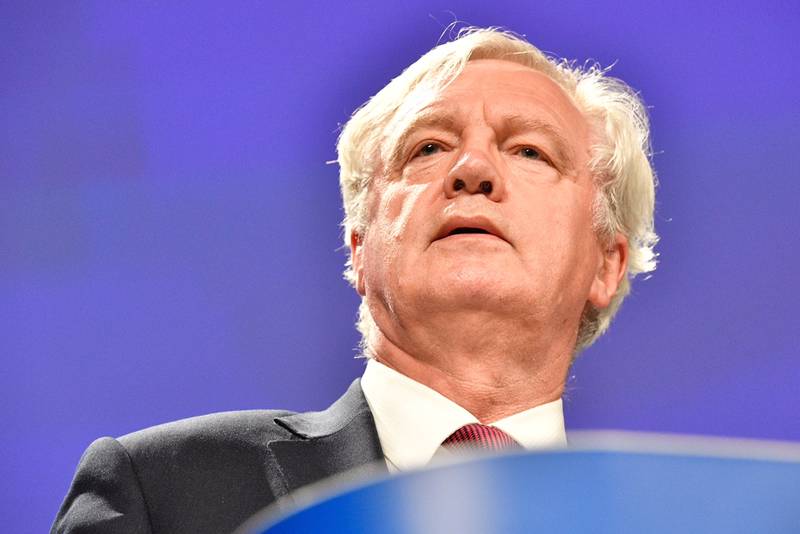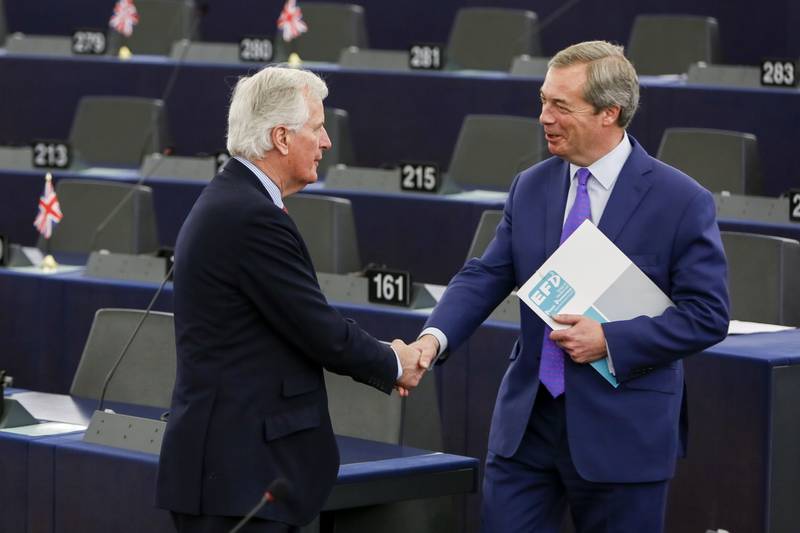Isn't the Price of UK Remaining in EU Too High?
Adelina Marini, February 3, 2016
 Judging by the proposal for a deal with Great Britain, the fourth basket of demands (social benefits for EU immigrants) turns out to be the easiest, and maybe the fairest, not like many thought the most difficult. Easiest, because the second one, which concerns issues like competition, regulation, and the common market, is practically solved. The most difficult baskets are the first one, encompassing relations between countries in the euro area with the ones outside it, and the third one covering the demands for returning national sovereignty. With the letter of European Council President Donald Tusk practically all demands of the United Kingdom are met. Some immediately, others when the right time comes. The problem is, however, that some of them, despite all the declarations made, put a spoke through the wheel of integration in the euro area.
Judging by the proposal for a deal with Great Britain, the fourth basket of demands (social benefits for EU immigrants) turns out to be the easiest, and maybe the fairest, not like many thought the most difficult. Easiest, because the second one, which concerns issues like competition, regulation, and the common market, is practically solved. The most difficult baskets are the first one, encompassing relations between countries in the euro area with the ones outside it, and the third one covering the demands for returning national sovereignty. With the letter of European Council President Donald Tusk practically all demands of the United Kingdom are met. Some immediately, others when the right time comes. The problem is, however, that some of them, despite all the declarations made, put a spoke through the wheel of integration in the euro area.
In the leaders’ draft statement, which they will be discussing at the extraordinary EU summit on February 18th and 19th in Brussels, it says that non-euro area members will not hinder the implementation of legal acts that are directly linked to the functioning of the euro area and will refrain from measures, which could hinder the efforts to meet the goals of the currency club. It is explicitly noted that EU laws on the banking union only concern the countries sharing the common currency, or have agreed to participate in the banking union. At the same time, however, legislation connected to the euro area, whose adoption requires the vote of all Council members, could be blocked if a certain number (left to be specified by the leaders) of non-euro countries have a “reasoned opposition” against the adoption of such an act with qualified majority, then the Council will have to discuss the issue.
The countries that are against the proposed legislation will have to justify their opposition by showing how the proposed measures are against the principles in the draft statement. It is explicitly stated in the draft document that one or more states must not be allowed to veto the effective management of the banking union or the future integration of the euro area. The wordings presented do not yet show a veto is possible, but if a reasoned opposition is presented, it will drive the Union into lengthy discussions, which in a best case scenario will slow down the proposed legislation, and in the worst case change it in detriment of deeper integration.
At the moment, nine EU member states are outside the euro area, with only two having negotiated opting out, while the others are obligated by treaty to adopt the common currency when they fulfil the requirements for it. Bulgaria, Croatia, The Czech Republic, Denmark, Hungary, Poland, Romania, Sweden, and the United Kingdom are outside the euro area. In the proposed document, however, they are treated equally as states outside the euro area. This could turn out to be a contradiction in a moment of argument, for a state that is obligated to join the euro area does in practise vote against it.
.jpg) The situation deteriorates dramatically with the proposed changes to basket number three – “Sovereignty”. After a lengthy explanation of the exact meaning of the phrase “to an ever closer union” in the preambles and the treaties Great Britain is promised that when the time comes for opening the treaties for amendments it will be written that the country has no commitment to further political integration in the Union. At the same time, however, the demand that national parliaments have the right to veto European legislation is being granted. National parliaments will be able to present “reasoned opinions” on the application of the principles of subsidiarity and proportionality. It will take 55% of the votes allocated to national parliaments within twelve weeks of the presentation of a draft legislation for a veto to happen.
The situation deteriorates dramatically with the proposed changes to basket number three – “Sovereignty”. After a lengthy explanation of the exact meaning of the phrase “to an ever closer union” in the preambles and the treaties Great Britain is promised that when the time comes for opening the treaties for amendments it will be written that the country has no commitment to further political integration in the Union. At the same time, however, the demand that national parliaments have the right to veto European legislation is being granted. National parliaments will be able to present “reasoned opinions” on the application of the principles of subsidiarity and proportionality. It will take 55% of the votes allocated to national parliaments within twelve weeks of the presentation of a draft legislation for a veto to happen.
The Presidency will have to include the topic on the Council’s agenda. If the demands of the opposing member states are not met, the discussion of the proposed legislation will be terminated. For this purpose the EC will create a mechanism for reviewing whether existing European legislation follows the principles of subsidiarity and proportionality.
Regarding the freedom of movement and the right to social benefits, Great Britain’s demands are also completely granted in the proposed deal. Every member state will have the right to institute restrictions for a limited period (which is to be specified at the February 18-19 summit). This is the so called “emergency brake”, which allows governments to pose restrictions on the payment of social benefits. Changes are also proposed to the regulation on coordination of social security systems, so that the exportation of child benefits from the state in which they are paid is forbidden. So if a Bulgarian family receives child benefits in Great Britain, it will not be allowed to receive them in case it transfers them to its homeland.
The proposed deal will come in force only if Great Britain decides to stay in the EU. This is why, there is more and more talk of having the membership referendum as early as this summer. This, however, puts forward the question whether the remaining of the United Kingdom in the Union will turn out to be more expensive for the EU than its leaving. It will all depend on how the voting goes, for a very close result (as is hinted by the polls), means that the British question will keep creating troubles for the EU. If London decides to stay, it will open the possibility for changes in the founding treaties, so that the deepening of integration within the euro area is accomplished, something that has already been agreed on in principle. The concessions to Great Britain, however, could turn out to be a serious obstacle and significantly delay this process.
The project, presented by Donald Tusk, thoroughly explains that the EU treaties allow for a multi-speed Union, but practise shows that these are just political declarations, which have no touch with reality, especially when it comes to the common currency. It is clearly seen from the deal proposed that there is a serious discrepancy between what Great Britain demands and its engagement to the EU. All opt-outs are recalled in the beginning of the document, which the country is enjoying in its membership: it has the right not to adopt the euro; not to participate in Schengen; to keep its border controls for persons; to choose whether or not to participate in the measures taken in the fields of freedom, security, and justice; has the right not to enforce (starting December 1st 2014) a large part of  EU legislation in the sphere of police and judicial cooperation on criminal cases
EU legislation in the sphere of police and judicial cooperation on criminal cases
In other words, Great Britain is more outside the Union than inside it, which poses the question whether in the name of its formal remaining the EU is not going to pay too high a price with the concessions offered. We will have the answer to this question at the summit in two weeks when the leaders of member states will thoroughly discuss every aspect of the deal.
Translated by Stanimir Stoev
 David Davis | © European Commission
David Davis | © European Commission Angela Merkel | © Council of the EU
Angela Merkel | © Council of the EU Michel Barnier, Nigel Farage | © European Parliament
Michel Barnier, Nigel Farage | © European Parliament